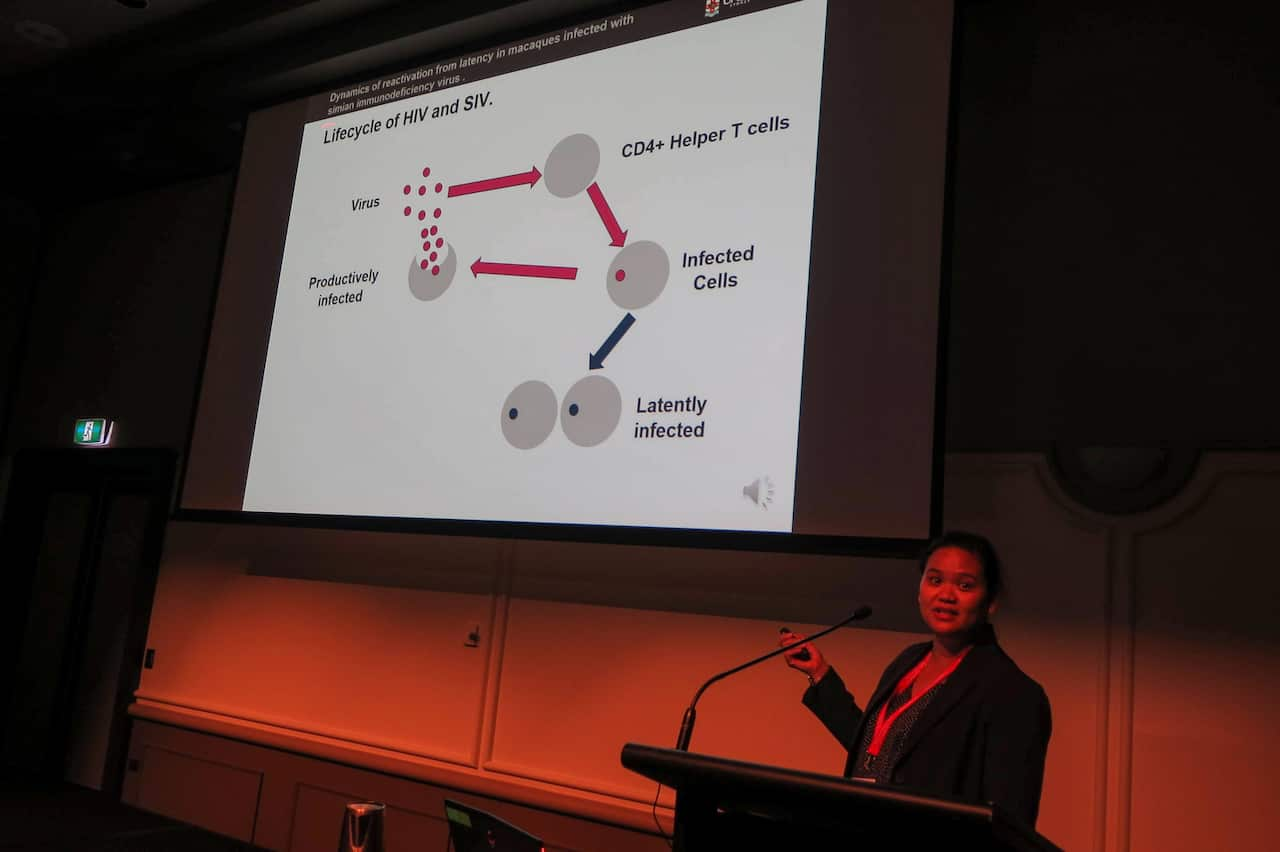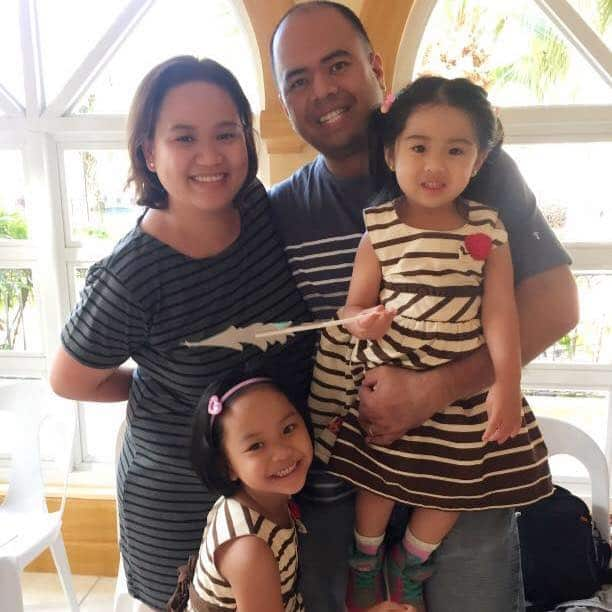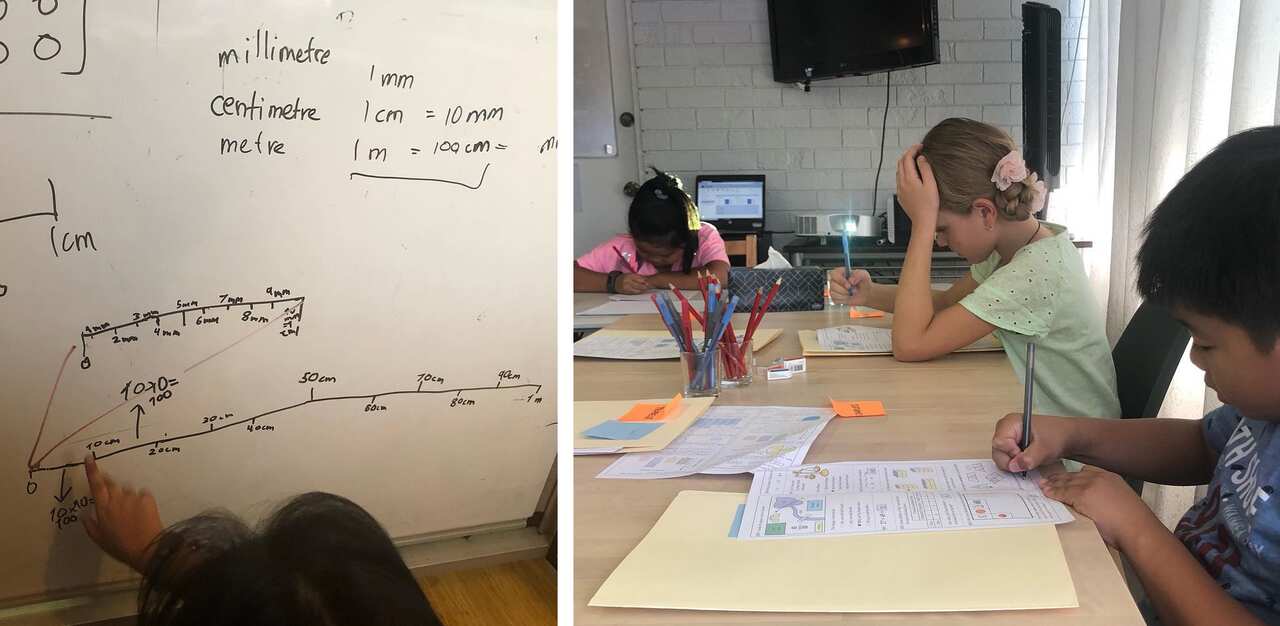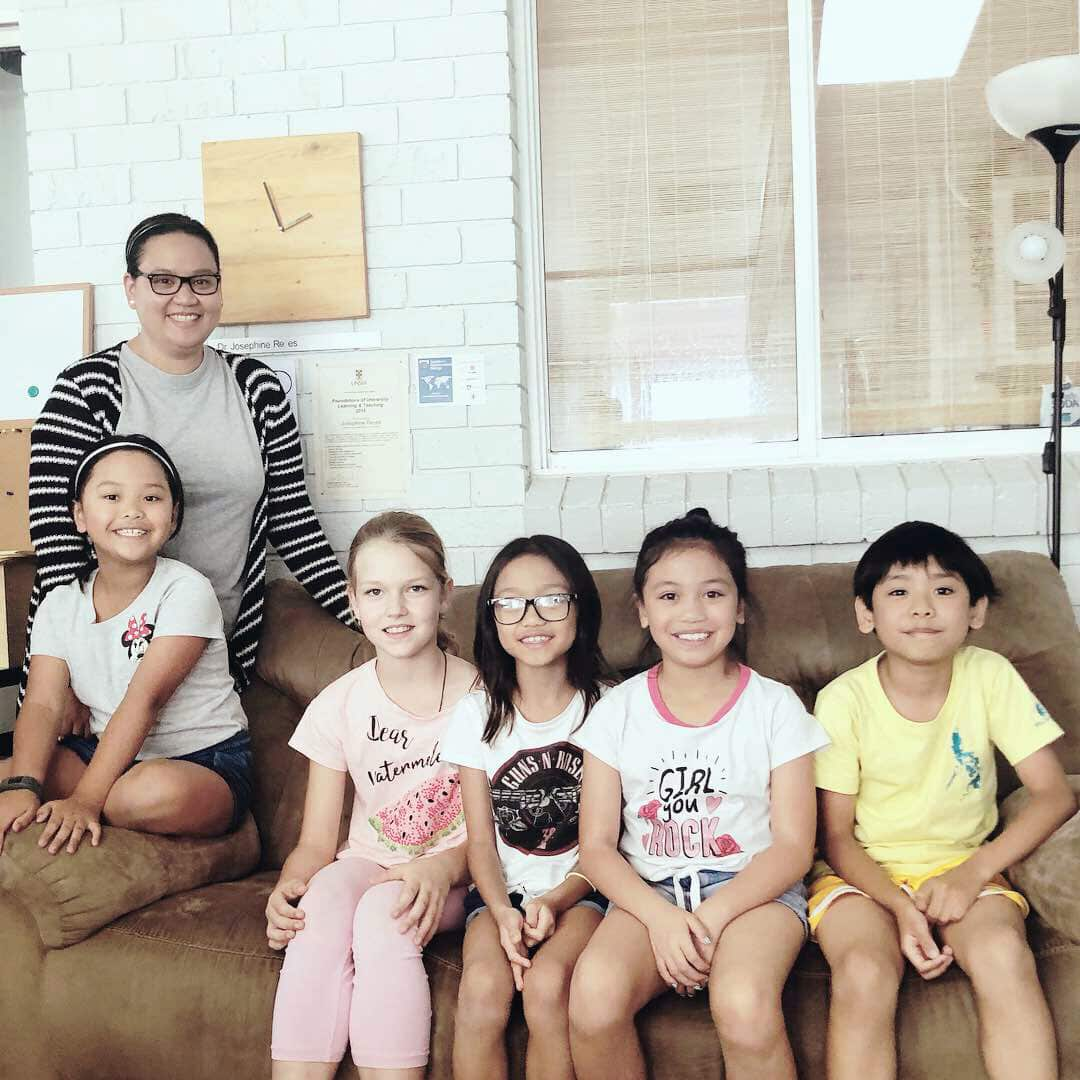Isang guro mula University of the Philippines (UP) at De La Salle University (DLSU). Isang postgraduate research fellow mula sa University of New South Wales (UNSW). Isang mathematical biologist na nag-aral ukol sa infectious disease modelling at health economics.
Maraming titulo ang Sydneysider na si Penelope Reyes-Jorge ngunit ang pangalan kung saan niya pinaka-natagpuan ang kanyang sarili ay Teacher Penelope, isang tutor.

"After teaching Maths in UP and DLSU, I wanted to explore other research opportunities. That's what brought me to Sydney and UNSW where I did Maths in Biology which was pretty cool. While I did my PhD, I taught Life Science because I always wanted to have that connection to students," aniya.
Ang isang estudyante na nagtulak sa kanyang magbago ng karera ay ang kanyang anak na si Sophia. Ayon sa kanya, naging inspirasyon para sa kanya ang "interest [of Sophia] in understanding the world through formal schooling."
Saad ni Penelope na madalas niyang i-tutor ang kanyang anak noong pumasok na ito sa eskwelahan. Dahil kilala si Penelope bilang trained mathematician sa kanilang mga kaibigan, maraming mga pamilya ang nagtanong ukol sa programa na itinuturo niya kay Sophia.

"I was tutoring at the same time I was doing research in university. I thought, I would give it a shot. It turns out a lot of families needed help. I was happy to help, so I decided to give it a go."
Paniwala ni Penelope na ang desisyon niyang umalis sa unibersidad upang alagaan ang kanyang mga anak at patakbuhin ang kanyang tutorial business ay "no-brainer".
Ilang taon ng nagtuturo ng mga estudyante si Penelope, ngunit ilang buwan pa lang pormal na tumatakbo bilang isang negosyo ang kanyang tutorial centre. Bilang isang negosyo, sumali si Penelope ng mga tutorial networking groups at, kumuha siya ng membership sa Australian Tutoring Association at mga appropriate checks upang makapagtrabaho kasama ng mga bata.
"I've also converted one of my rooms at home into a classroom. I have resources I've collected over the years - books, technology devices for students to work on. It's a typical classroom you would find in university or high school where there’s a space for students to write, to read and to discuss in small groups," saad niya.
Habang may mga tutor na gumagawa ng home visits, paniwala ni Penelope na "inefficient use of time" ito,

"I've come to realise that it’s important to take the child out of his comfort zone physically, to have him focus on the task at hand. That’s my philosophy with learning. Even myself, when I'm left in my space, [I get distracted.] Am I supposed to do work? Or am I supposed to rest?"
Ngunit kahit nagtatrabaho si Penelope sa bahay, wala ring pahinga para sa ina at negosyanteng ito. Siya lamang ang gumagawa ng administrative tasks at nagtuturo sa mga bata.
"I have two main groups - primary and high school students. For me, uni students are easier to deal with; but with younger kids, there's more involvement. They are in the age that they are like sponges. They learn quicker and are more impressionable," aniya.
Saad niya na malaki ang benepisyo ng pagkakaroon ng maliliit na grupo at one-on-one na tulong.
"It's an advantage that I have over larger tutorial centres - I'm able to give more time to students. People have different learning styles. Tutoring allows me to adjust to the pace of kids."
At habang mahalagang mag-adjust sa bawat bata, paniwala ni Penelope na hindi lamang ang mga estudyante ang mga kliyenta niya, ngunit ang kanyang mga pamilya din.

"You're not the only one teaching the child. It’s really an effort between you and families. I always provide feedback to parents so that learning continues even outside our sessions. This makes learning more wholistic."
BASAHIN DIN
